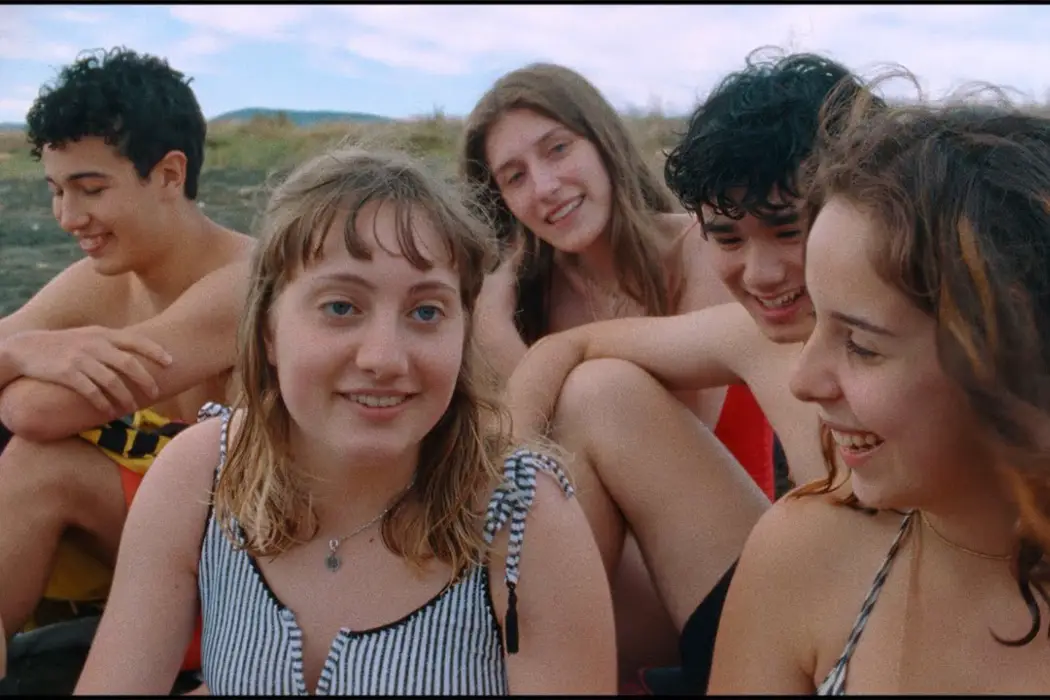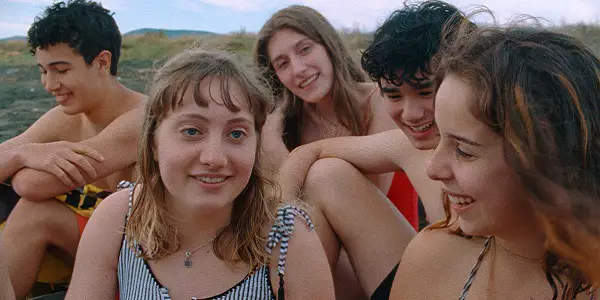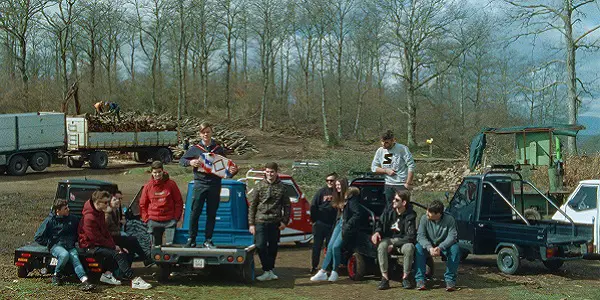FUTURA: Brave New World

Lee Jutton has directed short films starring a killer toaster,…
In the documentary feature Futura, a trio of leading Italian filmmakers — Pietro Marcello, Francesco Munzi, and Alice Rohrwacher — travel across the country interviewing a diverse cross-section of youths on the cusp of adulthood. While the project began prior to the pandemic, the onset of COVID-19, which hit Italy harder and faster than it did most other places in the world, only adds to the anxiety expressed by so many of these young people as they discuss their hopes and dreams. And while Futura doesn’t unveil any extraordinary new insights into the minds of teens and twentysomethings, it does force us to reconcile with the necessity of changing the world now so that we can all look forward to some kind of future, let alone a better one.
No Country for Young Men (and Women)
From northern Milan to central Rome to southern Palermo, from a home for refugees to a prestigious university to a beautician school, the filmmakers of Futura — all of whose previous filmography shows a keen interest in sociopolitical issues — gather groups of young people between the ages of 15 and 20 and ask them about the future. And even before pandemic and lockdown encroach on Italy like a poisonous black cloud, the answers are predominantly negative. As seen in Futura, the average young person doesn’t see much opportunity within reach in Italy. Yet it’s not out of a desire to abandon their country that most of them long to leave, whether it be either to study, work, or just absorb what the rest of the world has to offer. “If you never experience life outside Italy, you can’t change Italy,” one of them notes.

What needs to be changed, exactly? Italy is rife with the same political and economic divisions that can be found in so many other places around the world, including the United States. Jobs are scarce. A recurring theme among the responses is the importance of money, with one interviewee noting that in Italy, only those with money have the luxury of choice when it comes to deciding what to do with their lives. When one of the young men in the home for refugees voices a desire to abolish money altogether in favor of a new system, his friends are divided over whether that is a brilliant idea or a terrible one. Whatever you may think, money is clearly what makes the world go round, and those without it are increasingly bitter about the lack of opportunities available to them. “Life shouldn’t only be about surviving,” one young man says, and it’s impossible to disagree with him.
Waiting on the World to Change
Yet despite so much displeasure for the current state of things, there are few outright calls to arms voiced by the young people in Futura. When one aspiring boxer declares that people need to unite and protest in order to create change, Rohrwacher asks him, “Will you lead the movement?” “No, I’m too busy,” he demurs, before adding, somewhat tragically, “And what if I fail?” The shadow of the G8 protests that engulfed the city of Genoa in 2008, leading to a storm of police brutality that included nighttime raids upon the Diaz-Pascoli and Diaz-Pertini schools, still lays heavy on even those students who were too young to participate.
Footage of those protests and the resulting violence is included in Futura; seeing it, one can understand why some students would be seemingly afraid of repeating those bloody days and nights. Indeed, there’s a palpable sense of fear, as well as deference to authority, that comes through in many of the interviews, especially those in Genoa. Many of them claim that they trust the law, though one is left wondering whether they truly believe the law has their best interest at heart or they’re just afraid of the consequences of defying it. Either way, the line between obedience and transgression is one that many seem reluctant to cross. That isn’t to say that there aren’t any student protestors featured in the film; there are some, but not as many as you would expect from a documentary so focused on the importance of change. One gets the sense that the people behind the camera in Futura are actually more radical than those in front of it—but to be fair, Marcello, Munzi, and Rohrwacher have had years of experience out in the adult world to learn that one cannot merely wait for it to get better.

In addition to money, the other recurring topic of importance throughout Futura is that of sport, and especially soccer. In addition to becoming stylists, artists, and musicians, the most commonly cited career goal for many of the young people in the film — especially the working-class ones — is to become professional soccer players. It’s easy to see why: the rarefied world occupied by top athletes is one of glamor, excitement, and yes, money. If one doesn’t see many traditional opportunities for education or career within one’s grasp, one can always prove one’s worth on the pitch, both literally and theoretically one of the levelest playing fields in the world. When one of the young men in the film is asked what he would do if he became president, he says he would build more soccer fields. It’s such a seemingly simple wish, yet it stuck with me for the way it highlights how the beautiful game is one of the few things on the planet truly capable of bringing people together.
Conclusion
Throughout Futura, one is struck by how honest and articulate these young people are, though in a world dominated by Instagram and Tiktok, one shouldn’t be terribly surprised that they’re all comfortable sharing their innermost thoughts on camera. And while nothing expressed here is groundbreaking — we know young people, hell, people of all ages, are anxious about climate change and the dominant role of social media in our daily lives—the film is nonetheless a perfect, thoughtful time capsule of the age we’re currently in. One hopes that twenty years from now, the subjects of Futura will be able to look back and wonder what they were so worried about. But in order for that to happen, we’ll all have to stop talking and start acting.
What do you think? What are your concerns for the future? Share your thoughts in the comments below.
Futura opens an exclusive one-week New York theatrical run at Metrograph on January 28, 2022.
Watch Futura
Does content like this matter to you?
Become a Member and support film journalism. Unlock access to all of Film Inquiry`s great articles. Join a community of like-minded readers who are passionate about cinema - get access to our private members Network, give back to independent filmmakers, and more.
Lee Jutton has directed short films starring a killer toaster, a killer Christmas tree, and a not-killer leopard. Her writing has appeared in publications such as Film School Rejects, Bitch: A Feminist Response to Pop Culture, Bitch Flicks, TV Fanatic, and Just Press Play. When not watching, making, or writing about films, she can usually be found on Twitter obsessing over soccer, BTS, and her cat.













